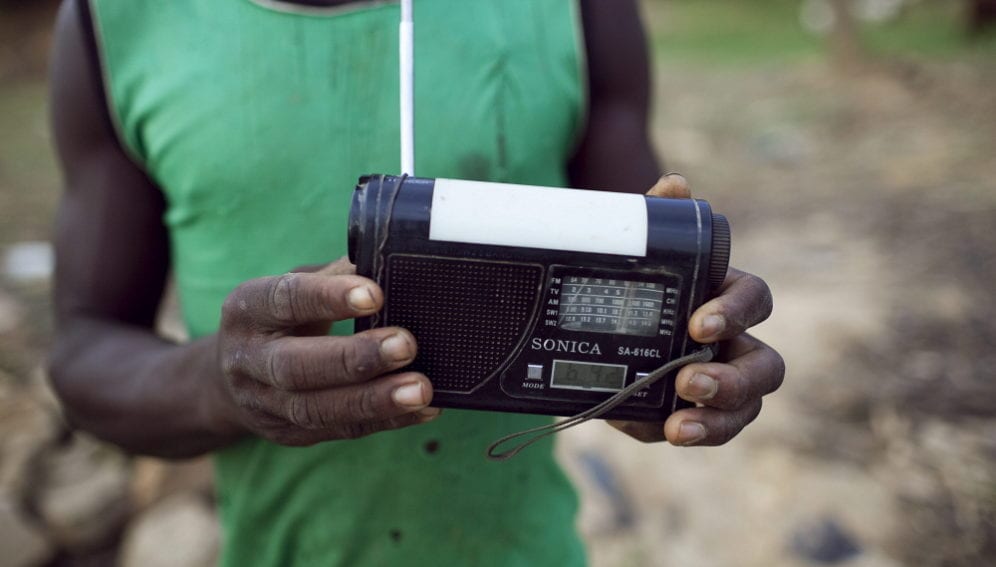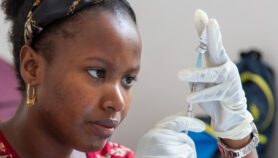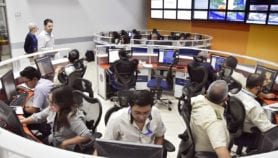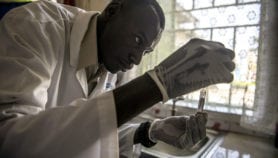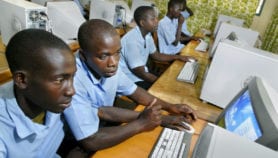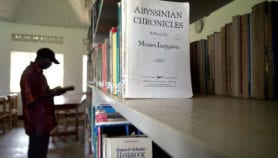By: Paula Park
Send to a friend
The details you provide on this page will not be used to send unsolicited email, and will not be sold to a 3rd party. See privacy policy.
A story about the relationship between two farmers and two scientists researching drought recently won Ghanaian journalist Kofi Adu Domfeh the 2014 African Climate Change and Environmental Reporting Award.
Domfeh produced a beautiful radio piece covering two human stories. The first covers a groundnut farmer in north-central Ghana who received assistance from a scientist at Ghana’s Crop Research Institute. The second takes place in eastern Kenya’s drought-ridden Machakos County, where the Kenya Agricultural Research Institute showed a farmer how to terrace his lands, dig pits and harvest rainwater.
I’ve been impressed with Domfeh’s piece and how it connects real Africans with scientists. So now when I hear policymakers talk about the need to translate knowledge about climate change so that it resonates with ordinary Africans I think first of radio.
I heard this call for journalists to help translate research into practical stories for ordinary people again this week. It came as I gathered alongside scientists and advocates in Marrakesh, Morocco, for this year’s Conference on Climate and Development in Africa (8-10 October). Fatima Denton, coordinator of the UN’s African Climate Policy Centre, urged reporters to interrogate climate research and convey it to farmers in a way they can use.
In the general discussion that followed scientists and journalists spoke about writing more articles and boosting their use of social media.
Community radio channels are ideal places for transmitting information that farmers need to change their lives.
Paula Park
But I heard little mention of radio — which is a shame.
I just completed a stint working as a communications manager for Afrobarometer, a project that surveyed citizens of 35 African countries. The survey shows that almost 8 out of 10 Africans get their news from radio at least a few times a month — some as much as once each day. Radio outranked all other sources of news. Television came a distant second with 56 per cent reporting similar levels of viewing.
About one in three people said they get news from newspapers, and just 17 per cent reported using the Internet.
I’m a big fan of community radio. In Accra, Ghana, where I live, the voices of news and entertainment announcers echo in taxicabs and in market stalls. Television watching is less wide spread, and forget about Internet for now.
Of course, online news will grow in importance — and traditional print media has a role as well, especially for communicating with policy advocates and leaders who make decisions about research priorities and about money.
But the growth in the number of radio stations that broadcast in people’s own languages shows just how popular the medium has become. In 1985 only about ten independent radio stations broadcast in Africa, according to a 2004 UNESCO report. Today more than 4,000 communities, trade unions and other organizations run community radio stations, according to the World Association of Community Radio Stations.
Community radio channels are ideal places for transmitting information that farmers need to change their lives.
But farmers have to want to listen. And that means either incorporating climate change information into existing, popular formats or working with communities to come up with new formats to which people want to listen.
How do we do that? Join scientists, community members and radio reporters in creating a new kind of programming that — like Domfeh’s award winning piece — speak simply about what farmers actually do and shows them what scientists are learning about how they can defend themselves against climate related challenges.


